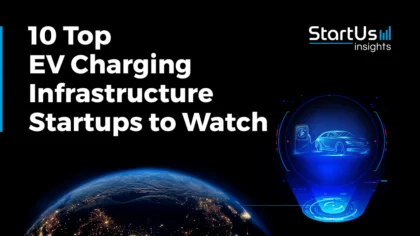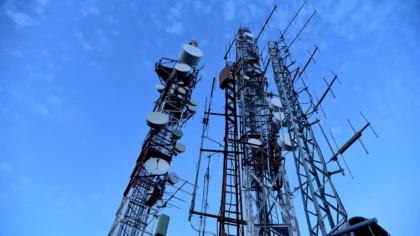Accelerate Productivity in 2025
Reignite Growth Despite the Global Slowdown
The four days it took the election bodies to decide the next US President kept millions around the world hooked to their screens last week. Joe Biden won with 306 electoral seats, but with voting margins as thin as they come. The record levels of mail-in ballots and disinformation contributed to the controversy around the results.
How come every time they count Mail-In ballot dumps they are so devastating in their percentage and power of destruction?
— Donald J. Trump (@realDonaldTrump) November 4, 2020
Trump alleged the election was stolen and is set to challenge it in the courts. Millions across the US, and then some globally, share this belief. A situation like this is not good for the public’s trust in elections.
As controversial elections go, this one is not an oddity in recent times. 2016 saw Austria’s presidential election results being overturned after it was discovered that thousands of absentee votes were improperly counted too early. In the last three years, the Philippines, Cambodia, Belarus, Hungary, and the Iowa Democratic caucus among others have witnessed elections with widespread allegations of irregularities.
Clearly, there is a need for technologies that make the process more transparent, while ensuring it’s secure from vote manipulation.
Blockchain-Based Voting Tech Could Resolve Disputes
Blockchain is a distributed ledger technology that’s transforming industries, with its most notable application being in the form of cryptocurrencies like Bitcoin and Ethereum. Governments and civic bodies around the world are embracing the technology, largely attracted by its primary attributes. Blockchain enables transparency, security, traceability, and speed of operations – all qualities that most democratic governments ideally aspire to.
As a data science company, we routinely look into emerging technologies that impact lives globally. To discover how innovations in blockchain help governments, we used the StartUs Insights Discovery Platform to identify startups and scaleups that use blockchain for GovTech solutions. Let’s take a look at how these companies impact public processes:
The US-based startup Titan Seal, for example, migrates government records to the blockchain. The immutability of the blockchain protects the record from any attempts at forgery. The British startup iov42 offers a distributed ledger platform centered around digital identities, digital assets, and digital certificates. This blockchain-enabled platform streamlines the issuance of certificates for different use cases.
Given the immutability of the blockchain, one would expect that it would be put to use to ensure transparent elections as well. Turns out it’s not as straightforward. Voting Tech startups, the section of GovTech startups that focus on elections, have not been as widely adopted by public agencies.
A major concern among voters for online voting, and for electronic voting in general, is the fear of large-scale manipulation. Manipulating one paper ballot at a time would take too much effort and electoral violence is increasingly a thing of the past in the age of smartphones enabled with cameras. Compare that to the threat of influencing thousands of votes should online systems be hacked.
Earlier this year, MIT researchers exposed vulnerabilities in a blockchain-based app that allowed hackers to alter, prevent, or expose how a vote is cast. The app belongs to Voatz, a startup based out of Boston that made history in 2018 when it was authorized for use in US midterm elections for military personnel and other absentee voters.
What emerging Voting Tech Startups are doing differently with Blockchain
At the start of the century, e-voting was considered a promising, and even inevitable, solution for election security, cost-effectiveness, and voter turnout. Today, governments, riddled with voting irregularities on one side and growing security speculations on another, have a variety of different solutions to choose from. Conveniently, security is where blockchain seeks to find its application in the election process. Indeed, this technology has the potential to secure fairness, transparency, resistance to tampering, and voter anonymity.
Although the application of blockchain to the election process raises speculations about the technology being prone to manipulation, companies around the world use it to develop solutions for secure voting. For instance, the Australian startup Horizon State provides ready to use blockchain-based election solutions. The startup advertises the unprecedented level of the tech’s security, built on the idea that data in a blockchain cannot be altered from a single point of entry.
Taking into consideration public mistrust towards election security, startups are extra cautious when it comes to testing their technology. The US-based startup Votem extensively tests its platform for voting verification, trying to minimize the probability of election day failure.
Heat Map: Blockchain Solutions for Election Security
Using the StartUs Insights Discovery Platform, we also looked at the global geographic distribution of 62 blockchain-based voting tech startups & scaleups. The Global Startup Heat Map below gives you a clear picture of where the major hubs are, as well as up-and-coming regions that show significant activity. Blockchain startups working on voting tech are primarily concentrated on the West Coast in the US, but also see significant, scattered activity across Europe.
Despite the disruptive potential of blockchain, the average funding these startups raise is approximately $13M, which is about the same as the average funding of startups in the GovTech sector. Not surprisingly, most startups working on blockchain for election security operate from the United States. However, the development of blockchain-based e-voting solutions is also popular in such countries as Switzerland, Great Britain, Australia, and Malaysia.
Voting Tech Solutions Build Trust in e-Voting
However, blockchain is not the only technology used for making elections more secure. Canadian startup NeuVote develops mobile voting methods that digitally connect voters to their paper ballots. This, in combination with biometric verification, represents another solution for secure voting. The method was developed on the premise that any type of remote voting raises doubts about whether the vote will be cast at all. To put these doubts to rest, voters need to actually see their ballots printed, which creates the niche for visual voting confirmation, yet another solution for ensuring non-fraudulent results.
Additionally, startups offer secure voting solutions at the organizational level. For instance, the Russian startup Polys provides an online voting platform for private entities, student unions, and even for internal political party use. Solutions like these do not match blockchain’s elaborate algorithms for data storing and protection. However, they manage to provide a certain level of security, be it biometric verification or visual confirmation, which is hard to bypass.
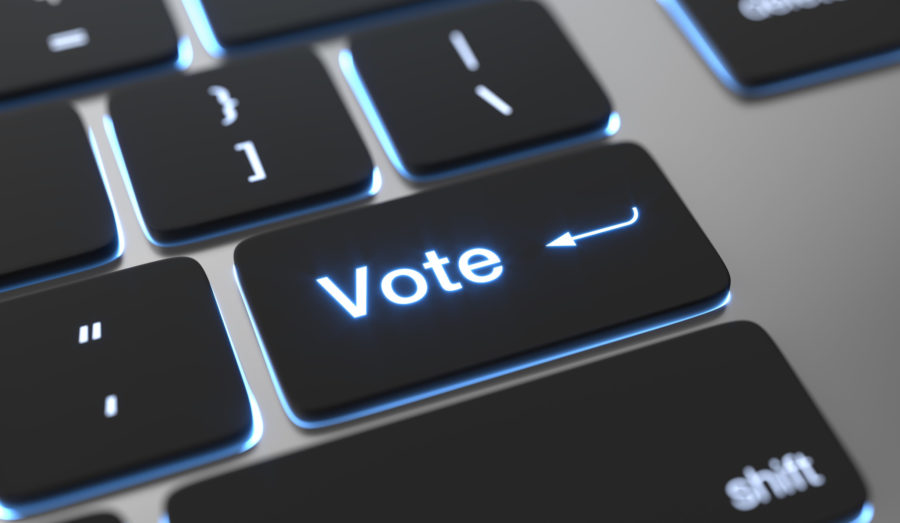
Estonia has been using electronic voting since 2005.
Regarding the US elections, public mistrust in tech security may be the biggest obstacle that the application of blockchain as a voting tech solution is facing. As one of the recent examples, Georgia state officials conduct a full by-hand ballot recount, refusing to trust any kind of technology used in the election process. On the contrary, in Estonia, people can vote online since 2005. In the 2019 Parliament elections, 43.8% of Estonians cast their votes using e-voting process. Any citizen can vote from an Internet-connected computer using the I-voting system and their ID-card.
Where Is Voting Tech Headed
The US elections have only strengthened the case for online voting because every time election results are contested, it hurts the citizens’ trust in the democratic system. How do we assure voters that their vote counted for their chosen candidate while ensuring the anonymity of the process?
End-to-end verifiable voting systems use advancements in cryptography to ensure the integrity of elections. The utility of cryptography in end-to-end verification has been extensively demonstrated in cryptocurrencies. Traditional banks, initially averse to cryptocurrencies, are now eager to embrace various virtual currencies. For a similar shift in elections, blockchain solutions would need to demonstrate unparalleled levels of security. These solutions would also need to be far more computationally-efficient to generate complex keys without burdening the government’s computational capacities.
What Blockchain can do for Your Business
While election bodies may be slow to adopt blockchain, your business doesn’t have to wait. Blockchain-based solutions can help you implement end-to-end traceability, incorporate smart contracts in your transactions, or boost the cybersecurity for your critical assets.
Regardless of your industry and the solutions you’re looking for, we will provide you data-driven insights into all the promising startups and technologies. By separating the noise from the signal, we will help you cast your vote for the right innovations.

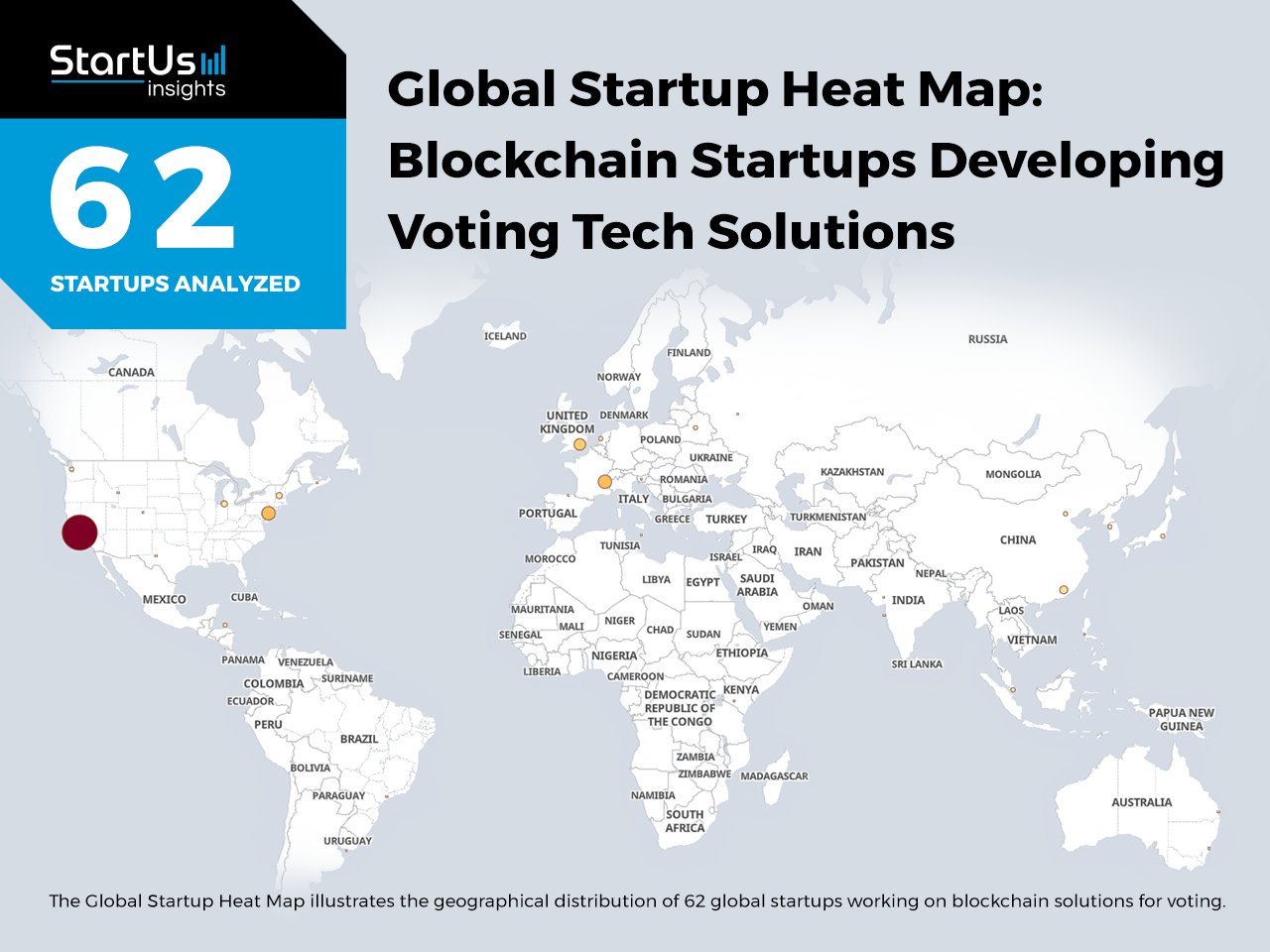
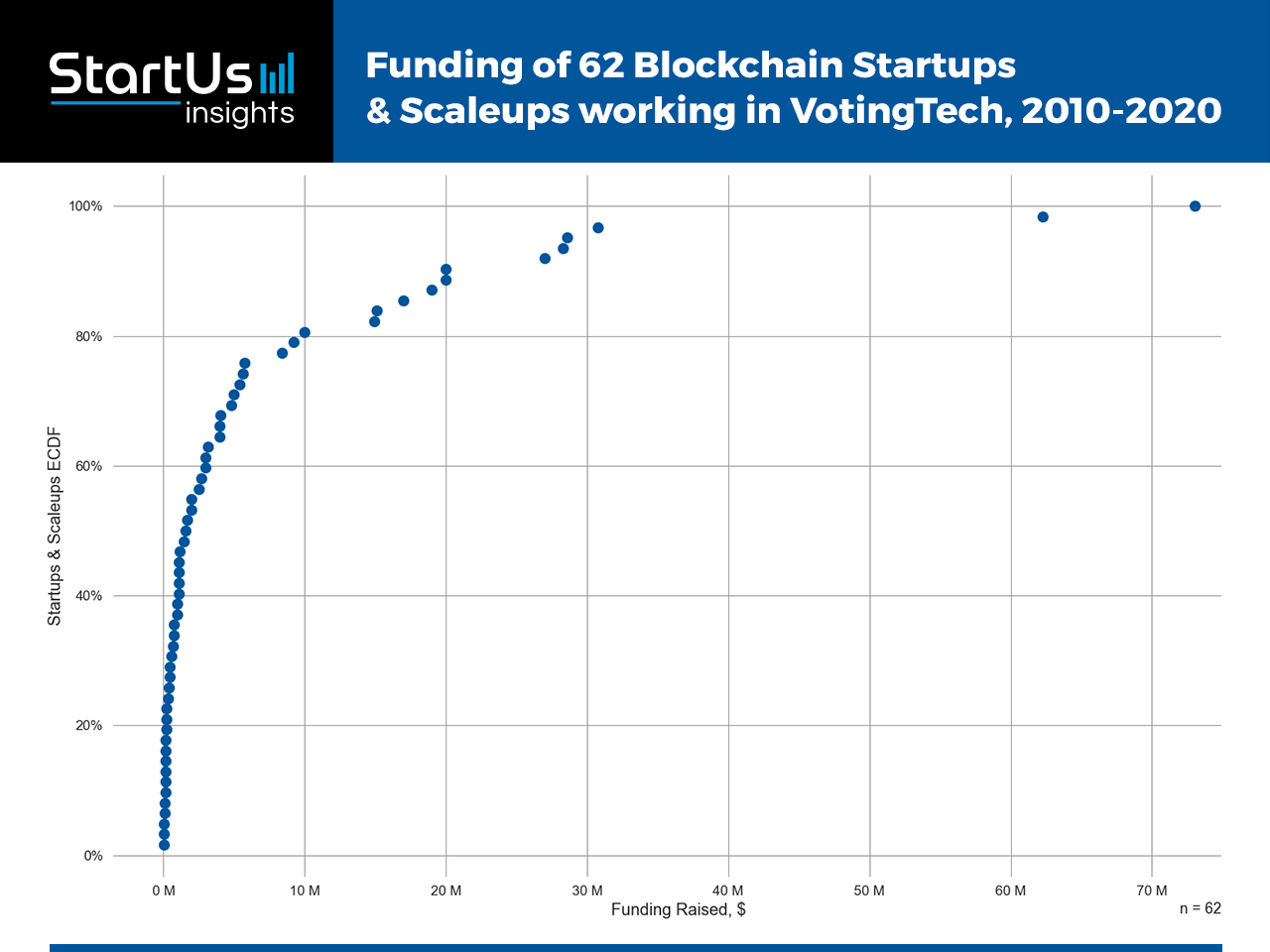
![Explore the 10 Emerging Smart City Trends [2025-2030]](https://www.startus-insights.com/wp-content/uploads/2025/06/Smart-City-Trends-SharedImg-StartUs-Insights-noresize-420x236.webp)
![10 Top Blockchain Solutions for Pharma Industry [2025]](https://www.startus-insights.com/wp-content/uploads/2025/06/Pharma-Blockchain-Startups-SharedImg-StartUs-Insights-noresize-420x236.webp)
